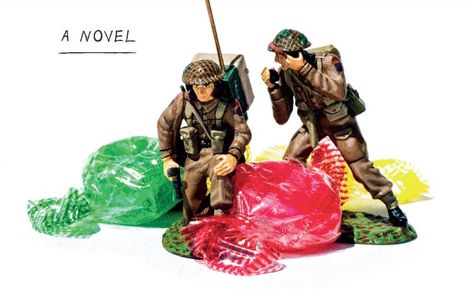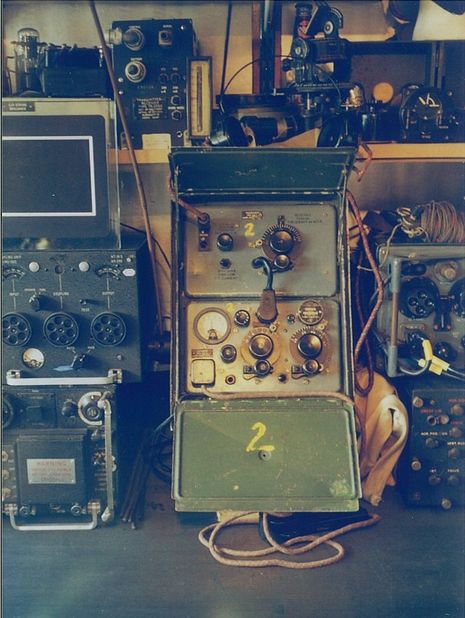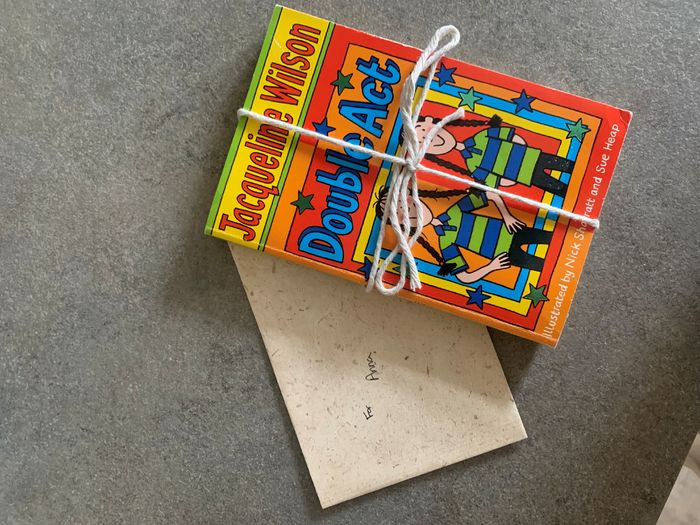Charlie Echo
Arts editors Famke Veenstra-Ashmore and Emma Hulse review Charlie Echo, a novel inspired by the Cambridge Footlights, alongside interviewing its filmmaker author.

Charlie Echo is fresh, original and explicitly inspired by pantomime and comedic elements, which find their way to the reader through Andrew Bullas’ witty dialogue. The story surrounds protagonist Charlie Goodman, a former radio operator and Second World War veteran who is suffering from PTSD. In an effort to help Charlie confront his past, his sister Margie brings him an old military radio in need of repair. However, when a ghost seems to materialise before him from inside the radio (an inventive take on the genie in a lamp motif), Charlie is reminded of a promise that he made on the battlefield and must now endeavour to fulfil. Filling in the gaps was thus the motive of Charlie Echo — and it makes for an entertaining and thought-provoking read.
Bullas’ preface and acknowledgements make it clear that his experience as a filmmaker, as well as working in the archives of the Imperial War Museum, was massively influential on his writing. The war elements of Charlie Echo stand out as thoroughly researched and, more importantly, genuinely interesting; Bullas’ own interest is projected on his pages. In our interview, Bullas reiterated the importance of this time on the project, describing the curiosity he felt as “a lot of the footage would be silent…you’d wonder what on earth they are saying to each other”.
“If you can make someone laugh, you’re connected to them in a way, something bigger than yourself.”
Influences of Cambridge seep through the novel as well, with the many jokes scattered throughout derived from, or reminiscent of, comedy relayed at The Footlights, which Bullas lauds in his outline of the novel’s background. He describes his interaction with comedy in Cambridge as “a really useful and necessary antidote to what I was doing for work during the day”, providing a diversion from some of the distressing footage he handled at the war museum. It is striking that the influence of the comedy group, so strongly associated with students attending the University of Cambridge, can be found beyond the institution itself. It is clear that we should not underestimate the impact and significance of comedy as an inspiration for writers such as Bullas. His inclusion of The Footlights, over perhaps more famous elements of the university or the city, suggests that beyond the cloud of academics that can obscure our perspective, little novels of curiosity and simple fun, such as Charlie Echo are just as prevalent as the more formal books which we might associate with Cambridge.

When speaking about the ADC, Bullas describes it as “such a safe and intimate environment to experiment in, even if, as a member of the audience, you were the one being experimented on” — an experience which is certainly emulated in Charlie Echo. However, Bullas feels that with his novel, he creates a permanence in the story, which he felt The Footlights, due to its format, could not achieve. “What I found sad about watching a lot of the Footlights’ pantos was that they’re gone, they’re ephemeral”, he reflects.“Even talking about it in the preface is preserving a little bit of the characters for other people who may not have been there.”
The novel, originally envisioned as a screenplay, certainly has a cinematic element to it. Bullas’ characters are comfortable on the stage, on a platform, and they are wholly genuine. He is enthusiastic about creating “visual images” and emphasising the plot’s “kinetic elements”, undoubtedly inspired by his filmmaking in the past. While the plot is lighthearted, and the novel’s brevity makes it a rather short, understated read, it achieves its aim in not being too heavy despite covering difficult issues such as PTSD. Its brevity does result in slightly underdeveloped characters and themes. Extremely short chapters, sometimes under a page, somewhat detract from the overall experience and duration of what otherwise is an engaging story.
“Bullas offers Charlie Echo to a post-pandemic world in a “gesture of friendship”, in the hope that it will make its readers smile.”
But Bullas advocates for this succinct style, keen to not “drag the dialogue along too much” and to “keep the tempo going”. He continues; “it’s a question of trying to keep it motoring along, and then gradually picking up speed as it’s getting towards the end”. He stresses that the farcical elements of the story work best when combined with a rapid pace, and in this way, he was able to imitate the energy and movement of pantomime. The “use of parallel action” was another aspect of his experience in filmmaking and watching the stage which influenced his writing style.
Another thing that struck us as uncertain in Charlie Echo, was the purpose of the novel and overall story as a whole. While clearly a passion project which amalgamated every interest, from the ADC theatre to the shared experiences of the Second World War, we wanted to learn more about why Bullas felt its story and elements were relevant in today’s society. In response to this query, Bullas referred to the shared experience of lockdowns, explaining: “there was a sense that people were feeling very isolated, and I’ve always felt that comedy was a great way of making connections with people, and offering them reassurance. If you can make someone laugh, you’re connected to them in a way, something bigger than yourself, and I think that’s good at all times, but particularly during this time”.
The polar themes of comedy and wartime are also of interest to Bullas, who feels that in capturing the spectrum of emotions felt by people then, and people now, “all those elements came together, fused in a way — so this is why we’ve got the war story with pantomime elements.” He reflects on watching archive footage of soldiers fooling around in front of the camera, turning to humour to support them through a difficult situation. In much the same way, Bullas offers Charlie Echo to a post-pandemic world in a “gesture of friendship”, in the hope that it will make its readers smile.
Andrew Bullas was born in Worcestershire. After a BA in Fine Arts from Portsmouth Polytechnic he attended the London Film School. Subsequently, he has divided his time between independent filmmaking teaching and a stint working for the film archive of the Imperial War Museum. He is the founder of Pepwell Productions, as an occasional radio show entitled Plough Your Own Furrow. Charlie Echo is his first book. It is inspired by the Cambridge Footlights and elements of war — influenced by the incredible footage he worked on at Duxford.
Review copies were kindly provided to the Varsity Arts team for this article.
 Features / Should I stay or should I go? Cambridge students and alumni reflect on how their memories stay with them15 December 2025
Features / Should I stay or should I go? Cambridge students and alumni reflect on how their memories stay with them15 December 2025 News / Cambridge study finds students learn better with notes than AI13 December 2025
News / Cambridge study finds students learn better with notes than AI13 December 2025 News / Dons warn PM about Vet School closure16 December 2025
News / Dons warn PM about Vet School closure16 December 2025 Comment / The magic of an eight-week term15 December 2025
Comment / The magic of an eight-week term15 December 2025 News / News In Brief: Michaelmas marriages, monogamous mammals, and messaging manipulation15 December 2025
News / News In Brief: Michaelmas marriages, monogamous mammals, and messaging manipulation15 December 2025










